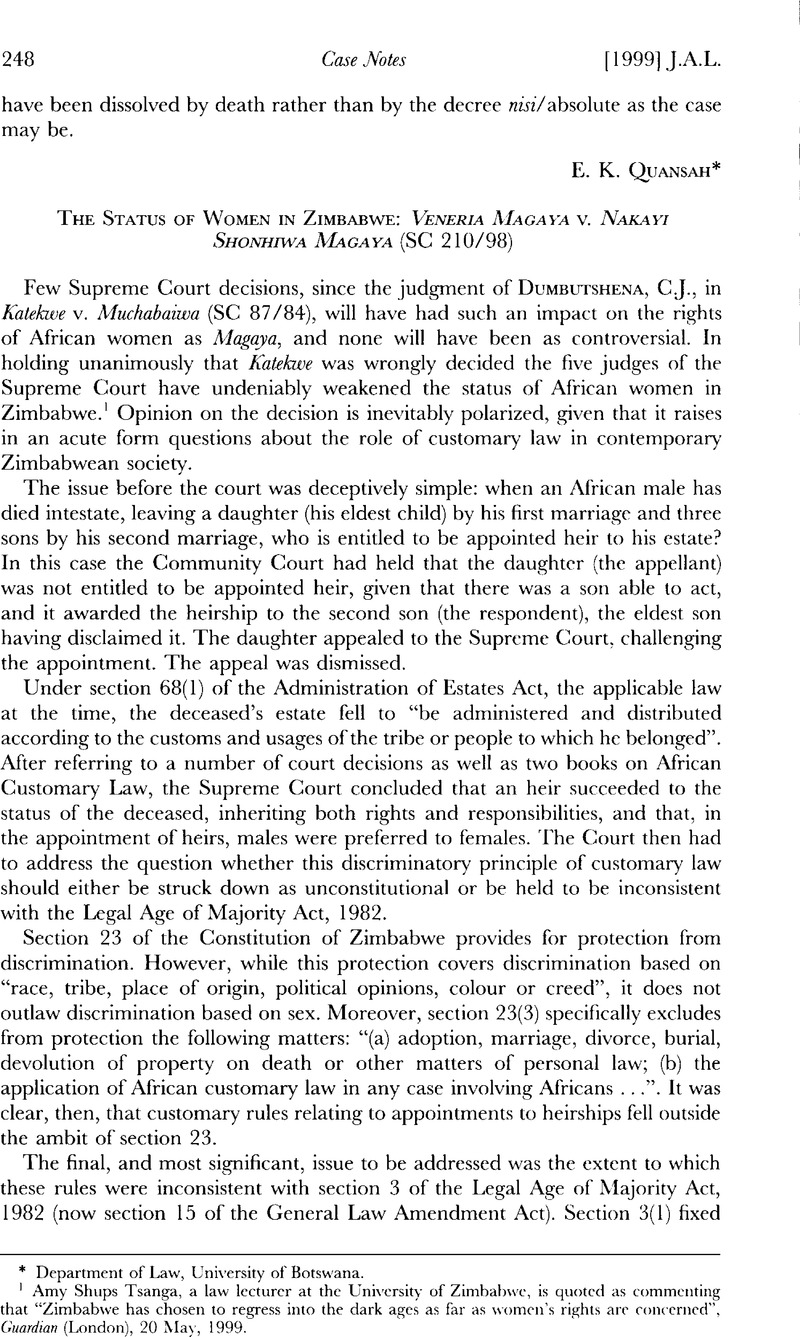Published online by Cambridge University Press: 28 July 2009

1 Amy Shups Tsanga, a law lecturer at the University of Zimbabwe, is quoted as commenting that “Zimbabwe has chosen to regress into the dark ages as far as women's rights are concerned”. Guardian (London), 20 05, 1999.Google Scholar
2 In any case section 12(4)(a) of the Customary Law and Primary Courts Act, 1981 (as amended) imposed a duty on a husband to maintain his wife during the marriage and, after the dissolution of their marriage, until her remarriage.
3 Quoted in Katekwe from the zimbabiwe Herald, 6 September. 1983.
4 For a commentary on this Act see Simon, Coldham, [1998] J.A.L. 129.Google Scholar
5 Discussed above.
6 Although in any case involving guardianship or custody the interests of the child are the paramount consideration, the courts will generally prefer the mother's guardian to the father. Ironically, by virtue of section 6(3)(b) of the Maintenance Act (introduced by the Customary Law and Local Courts Act, 1990 Sched., Part III, s. 4), both parents are to be regarded as primarily and jointly liable for the maintenance of their child/children.
7 Katekwe, had, of course, delinked roora from custody rights, and it appears that since Katekwe Community Courts have been awarding guardianship to African women. See W., Ncube, Family Law in Zimbabwe (Harare, 1989), s. 118.Google Scholar
8 In Lopez v. Nxumalo SC 115/85 the Supreme Court allowed a married African woman to sue for damages in respect of her minor daughter. It seems clear that this decision is implicitly overruled by Magaya.
9 In Jenah v. Nyemba SC 49/86 the Supreme Court rejected the argument that a married African woman could not institute a claim for property without the assistance of her husband. After Magaya such an argument would be likely to succeed.
10 Supreme Court Art, no. 3 of 1981, Ch. 7.13 (Statute Law of Zimbabwe, Revised Edition 1996), s. 26(2).